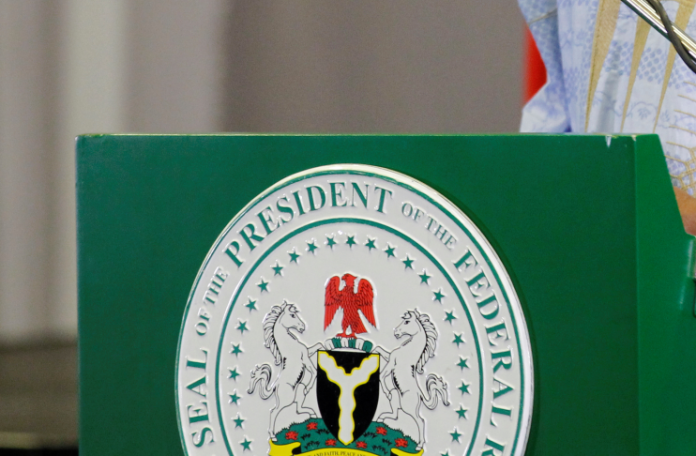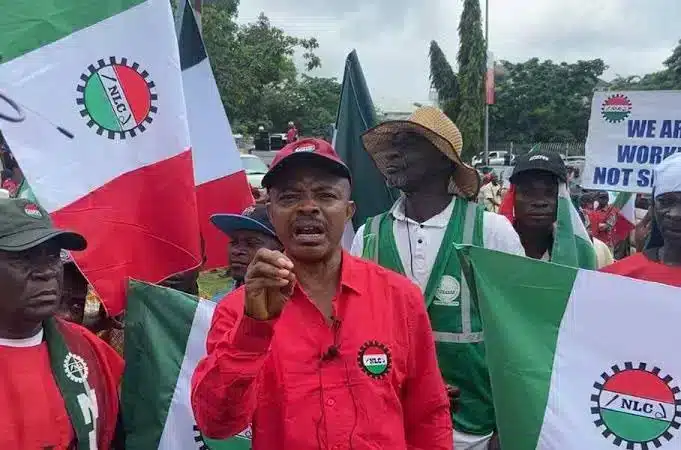The Federal Government of Nigeria has barred all Ministries, Departments, and Agencies (MDAs) from entering into contracts priced in foreign currencies.
This is one of several fiscal control measures introduced under the 2025 Appropriation Act Implementation Guidelines, now in force.
The directive is clear: “MDAs are to ensure that their contracts are wholly denominated in Nigerian Naira.” No agency may go around this rule without getting the express approval of the Minister of Finance and Coordinating Minister of the Economy.
The guideline, issued by the Budget Office of the Federation, adds more pressure for MDAs to stay accountable in how public funds are spent.
It also strengthens the Federal Government’s ongoing efforts to boost transparency, reduce forex misuse, and enforce economic discipline.
No More Backdoor Salary Payments
The Budget Office now mandates MDAs to submit monthly budget performance reports by the 15th day of the next month.
Failure to do so means they won’t be considered for new budget releases—capital or recurrent. “Budget releases must now align with actual project progress,” the guideline stated.
To clean up the government payroll system, the Budget Office said it would intensify monthly and quarterly reviews of nominal rolls. This is to remove “unjustified payroll entries and allowances.”
Payments for promotions or arrears are also banned from the IPPIS platform. Instead, MDAs must send such requests to the Committee on Payment of Promotions and Salary Arrears, following a circular issued on December 17, 2020.
There’s also a fresh order for all MDAs to submit detailed monthly breakdowns of all non-regular allowances received, including their usage and any unspent balances.
New hiring or replacement of staff is now frozen unless approved. Any head of agency who flouts this will face sanctions.
Dollar Use, Tax Waivers, Foreign Support Now Under Watch
The Federal Government also warned MDAs not to grant tax exemptions to contractors. “All exemptions must follow due process and be formally approved through the appropriate legal and fiscal channels,” it said.
MDAs known for giving frequent waivers or neglecting enforcement must now stay within the annual tax expenditure cap in the 2025 Appropriation Act. Source: Budget Office.
Similarly, support from international development partners—cash or kind—must go through the International Cooperation Department of the Ministry of Budget and Economic Planning.
All such support must also be reported monthly to the ICD and the Office of the Accountant-General of the Federation.
These new conditions are part of broader reforms to discipline budget execution and ensure every Naira counts.
In another move, the FG reiterated that MDAs must now indicate GPS coordinates for all capital projects above ₦150 million.
President Bola Tinubu’s administration has also approved the Renewed Hope Nigeria First policy, giving top priority to local goods, services, and talent.
“This policy puts Nigeria at the centre of every kobo the government spends,” said Minister of Information, Mohammed Idris.
He confirmed that an Executive Order is underway to give the policy legal teeth—echoing the “America First” doctrine once adopted by U.S. President Donald Trump.
“Going forward, any business to be done by the government must place Nigerians first. If a local option exists, there’s no reason whatsoever to import,” Idris said.
Economists React: Can This Save The Naira?
Some economists believe this decision is long overdue. The first to propose it was actually the Labour Party presidential candidate in 2023, Mr Peter Obi, who argued that the Naira would never be strengthened while Nigerians expressed more faith in other currencies than the Naira.
He said that the value and stability of any national currency directly reflected the faith reposed in it by both domestic users and international investors.
Also, a Lagos-based economist, Adewale Abimbola, said the directive would help check widespread abuse of foreign-denominated government contracts.
“It’s essentially designed to minimise corrupt practices around procurement,” he said.
Development expert Dr Aliyu Ilias added that this could be a powerful tool against Nigeria’s persistent forex problems.
“Most of our problems with forex are because we pay for too many things in dollars—including contracts and even salaries,” Ilias said.
He argued for even stricter rules: “Even getting approval still creates demand pressure on forex.”
Ilias said that pushing both private and public sectors to embrace the naira was essential: “It’s the only way to boost the naira and stabilise the economy.”
Rate, Like 👍, Comment💬, share this article, Follow us on our social media handles, and Submit your own story to get featured and earn rewards!







